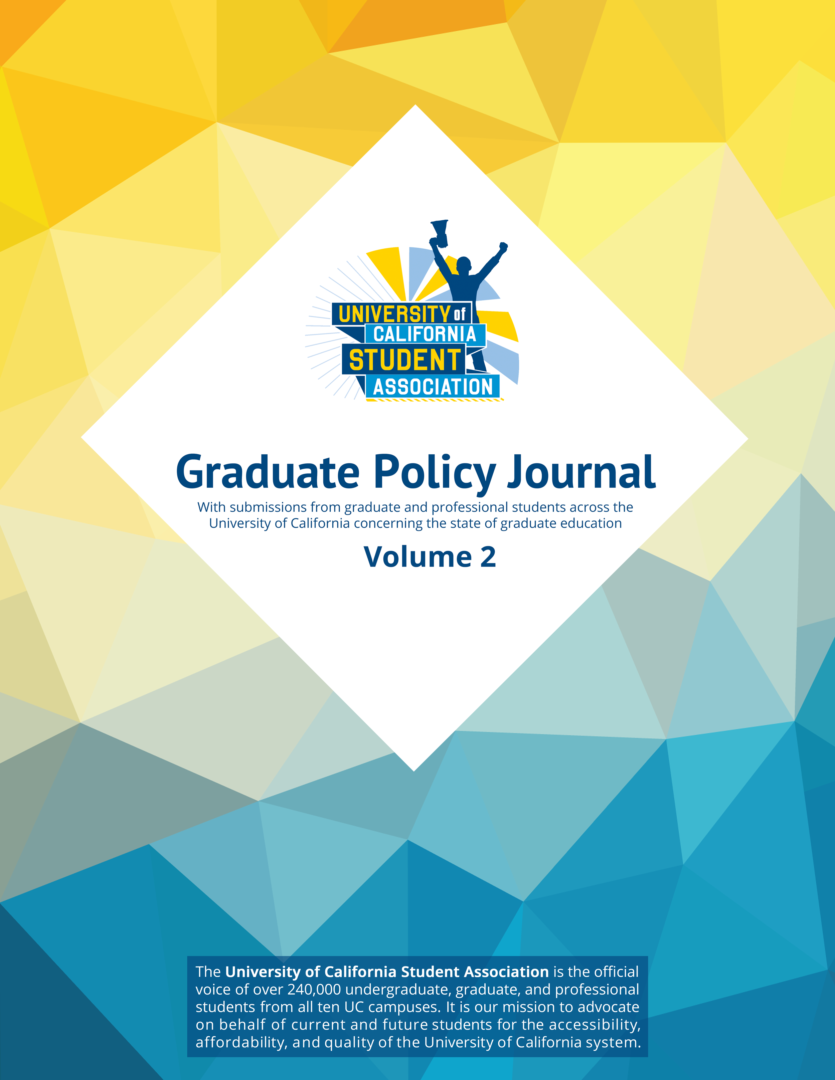 Message from the Lead Editor, Michelle Oyewole
Message from the Lead Editor, Michelle Oyewole
Welcome to the second volume of the UCSA Graduate Policy Journal, wherein students have offered a vision for improving graduate education in the UC. We present the research findings and opinions of graduate students to ignite changes in administrative and legislative policies affecting graduate education on our ten campuses.
Graduate students come from many cultural, social, and academic backgrounds to pursue advanced degrees. We play an important role in sustaining higher education: without us there would be no teaching assistants, fewer instructors, and few mentors for undergraduate students. We produce research with national and international impact in arts, humanities, engineering, social and physical sciences, and everything in between. Professional students pursuing degrees in disciplines such as medicine and law continue to be the workforce our society depends on. Together, we are one in every five UC students.
Embedded within the politics, economics, and history of the US, the UC suffers from many issues faced by society at large. On our campuses and in our departments, students of minority and underrepresented backgrounds contend with implicit biases that emulate systems built for our exclusion. University elitism is often the basis to justify unequal compensation and treatment. Student loan debt stifles many, and graduate student access to subsidized loans has been stopped entirely. Graduate students in sciences and engineering are funded at higher rates than students in the arts and humanities. As the institutions studying these phenomena, it is ironic that we seem, at present, unable to address them within our own walls. As a result, we replicate patterns in higher education that were established before African Americans could enter most universities and before women could vote.
Accordingly, we envision a UC where the needs of graduate students do not come as an afterthought, where no student is mistreated by their faculty advisor, where there is no ambiguity in our paths to degree completion, where our departments are inclusive, and where we are able to focus more on research than on problems affecting our mental and physical health. We believe the UC has the potential to serve as a leader in creating academic cultures that support the success of all graduate students, and we present this volume as an additional chronicle of the problems our administrations should address to achieve this.